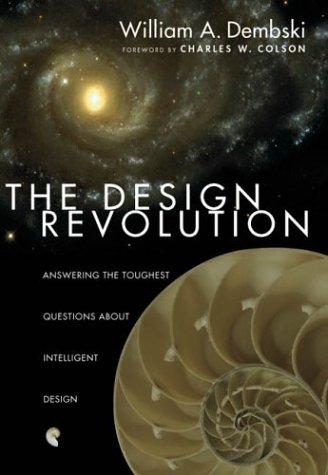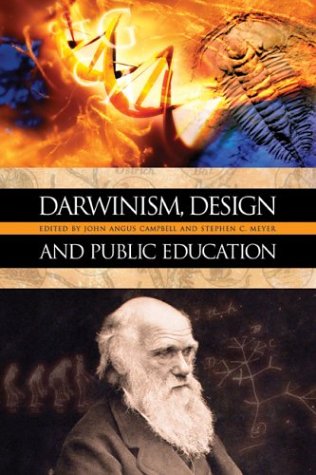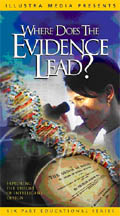
Access
Research
Network
|
|
Access |
ARN-Announce is the on-line announcement and information service of Access Research Network. ARN generates announcements to the current ARN Announce list as information becomes available. You have received this message because your email address was submitted to this list. Subscription and Unsubscription information is at the end of this message.
Click here for a text-only version of this document.
IN THIS ARN-ANNOUNCE:
A.K. Dewdney
1999 (hardback edition), John Wiley & Sons, 218 pp.
When I was an engineering student in college there was a course offered for non-science majors entitled “Mathematics Without Tears.” I always envied the guys in that class imagining them sitting around discussing the beauty and philosophical implications of mathematics without having to spend hours a week doing math homework sets. A.K. Dewdney’s recent book A Mathematical Mystery Tour: Discovering the Truth and Beauty of the Cosmos now provides that opportunity for those of who weren’t able to take that course in college.
I’m also constantly searching for books from various disciplines that approach the topic of Intelligent Design from a different angle. In Tour, Dewdney undertakes to answer two questions. First, why is mathematics so amazingly successful in describing the structure of physical reality, and second, is mathematics discovered or is it created? I believe both of these questions would meet Phillip Johnson’s criteria for “asking the right question.”
Dewdney is on a quest to understand the true nature of math. To fulfill his quest, he employs what he describes as "a fictional narrative," where the reader is taken on a historical journey to interview famous mathematicians in Greece, Arabia, Italy, and England.
At the end of the journey Dewdney concludes that the essential contents of mathematics was not created by man, but rather discovered. He uses the term holos to describe the place where mathematics exists, apart from the human mind:
“The place, however one conceives it, is immense. The total amount of information it contains is incomparably greater than the information that would seem to be required to specify the cosmos, even were the cosmos infinite. Yet the holos subtly pervades the cosmos. What is an algebraic formula doing lurking in the wavelengths of the hydrogen atom? What gave Adams and Leverrier any right to expect that their predictions for the position of a new planet in the solar system would be correct? Who can doubt that if a cosmic system, be it planetary or atomic, obeys certain axioms, then it will obey every theorem that springs from those axioms?...The cosmos exists because there is a mind that can think it.”
My recommendation is that you read Tour and then when you find yourself surrounded by a group of techno-geeks at your next social event, you pop the question “Is mathematics discovered or is it created?” and see what happens.
To order your copy of Mathematical Mystery Tour go to: http://www.arn.org/arnproducts/php/book_show_item.php?id=64
Note: We recently started offering our new products for a “Suggested Donation.” We have decided to move away from the retail model and more toward a donation model which is more consistent with our non-profit mission. Our suggested donations will usually be close to the publisher’s list price for the item and will include shipping. This should make the price fairly similar to purchasing from other sources when you include tax and shipping costs. You may be able to find the product cheaper somewhere else in cyberspace, but we hope the “value-add” provided by ARN motivates you to acquire the products from us and support the work being done here. Any amount you pay for an item above the “Fair market value” is considered a donation by the IRS since ARN is a 501(c) 3 organization and may be eligible for a tax-deduction. Please consult your tax advisor for details.

William A. Dembski
Foreword by Charles W. Colson
2004 (hardback edition), InterVarsity Press, 330 pp.
Bill Dembski has been on the bleeding edge of the Intelligent Design movement and has the scars to show for it. His ideas, and those of the ID movement in general, have been challenged by the status quo critics in debates, lectures, book reviews and internet forums. In this book Dr. Dembski rises to the occasion clearly and concisely answering the most vexing questions posed to the Intelligent Design program. Writing with nonexperts in mind, Dembski responds to more than sixty questions asked by experts and nonexperts alike in short succinct chapters. Here are a few endorsements from the reviewers:
"Dembski, a philosopher/mathematician who has been
an important theorist for the intelligent design movement, handles a wide
range of questions and objections that should give both fans and detractors
of ID plenty to chew on."
Publishers Weekly (Dec 22, 2003)
"Not everyone will agree with all that is claimed in
this book, and some knuckleheads will reject its theses without reading
the book at all; but something of what is claimed in these pages will
strike every fair-minded reader as important and provocative. The book
does what it proposes to do. It meets criticisms of intelligent design
honorably; it allows new ideas to breathe."
David Berlinski, mathematician and author of A Tour of the Calculus
and Secrets of the Vaulted Sky
"This book spells out clearly for the general public
how and why the progress of modern science points strongly toward an intelligent
designer. It answers the most common criticisms of design theory so deftly
that it makes one wonder if dogged opponents of design have something
on their minds other than pure science."
Michael Behe, Professor of Biology, Lehigh University, and author of
Darwin's Black Box
"Dembski's latest book indicates more clearly than
any other recent publication that I know why CSI--the sort of order observed
in complex machines or computer programs--cannot originate by cumulative
selection. The improbability is far too great! Obviously if biological
systems contain considerable amounts of CSI as Dembski claims, then the
standard Darwinian explanation is deeply flawed, and what is needed is
a new paradigm for understanding the natural world."
Michael Denton, molecular geneticist and author of Evolution: A
Theory in Crisis and Nature's Destiny
"Bill Dembski poses all the tough questions that critics
ask about intelligent design in biology, and brilliantly answers them
all!"
Phillip Johnson, author of Darwin on Trial
To read more endorsements or order The Design Revolution go to http://www.arn.org/arnproducts/php/book_show_item.php?id=65
|
Ten Questions to Ask Your Biology Teacher About Design
|

John Angus Campbell, Editor
Stephen C. Meyer, Editor
2003 (Paperback edition), Michigan State University Press, 634
pp.
One of the favorite arguments of ID critics is the false claim that ID advocates don’t publish in peer-reviewed publications. Darwinism, Design and Public Education, is yet one more example of how off-base the critics are. The publisher, Michigan State University, in accordance with academic policies for its Rhetoric and Public Affairs Series, submitted the book to an expert panel of reviewers including a professor of biochemistry at an Ivy-league school and professors in the philosophy of science and rhetoric of human inquiry fields. There is no doubt that this volume has been peer-reviewed.
The book presents a multi-faceted scientific case for the theory of intelligent design and also examines the legal and pedagogical arguments for teaching students about the scientific controversies that surround the issue of biological origins.
Editor John Angus Campbell lays out the design of the book in the introduction:
“Darwinism, Design, and Public Education will seek to advance public discussion of science education by presenting arguments for and against a more inclusive, controversy-based biology curriculum. In order to do this, the book will also present arguments for and against both contemporary Darwinism and the theory of ID itself. Darwinism, Design, and Public Education is divided into four parts and appendixes. The first part of the volume presents three essays arguing for a more inclusive approach to science education—indeed, one that would encourage science educators to teach students about scientific challenges to Darwinian theory and about the challenge posed to Darwinism by advocates of the theory of intelligent design. The second part includes several essays that provide scientific critiques of contemporary evolutionary theories or textbook presentations of these theories. The third part presents essays that develop the scientific case for intelligent design. The fourth part offers responses, chiefly critical, to the essays in the first three parts of the volume. The appendixes present both supporting documents about the controversy over the teaching of evolution in the public schools (including the transcript of a recent hearing of the U.S. Commission on Civil Rights and an essay by Donald Kennedy) and a technical supplement to the case by Stephen C. Meyer, Marcus Ross, Paul Nelson, and Paul Chien on the Cambrian explosion.”
Those familiar with the ID movement will recognize most of the contributors to this volume, as well as some of the articles which appear in book form for the first time. Integrated under the watchful eyes of editors John Angus Campbell and Stephen C. Meyer, this book is an important contribution to the “Teach the Controversy” viewpoint for how to handle the origins controversy in our public schools.
John Angus Campbell is Professor and Director of Graduate Studies in the Department of Communication at the University of Memphis and is a past President of the American Association for the Rhetoric of Science and Technology. Dr. Campbell's research has focused on the rhetoric of science. He has published numerous technical articles analyzing the rhetorical strategy of Darwin's The Origin of Species and is widely regarded as the world's foremost expert on the subject. The Rhetoric of Charles Darwin is a video interview with Dr. Campbell available from ARN.
Praise for Darwinism, Design, & Public Education
“Darwinism, Design, and Public Education should
be read by everyone seeking a fair and comprehensive debate about the
teaching of evolution in American public schools… this book’s
careful yet passionate dialogue actually provides the tools needed by
a democratic public to make sense of this difficult controversy.”
—James Arnt Aune, Texas A&M University, author of Rhetoric
and Marxism and Selling the Free Market
To view the table of contents or order Design, Darwin and Public Education go to http://www.arn.org/arnproducts/php/book_show_item.php?id=66

Video Documentary
Unlocking the Mystery of Life has been one of our besting selling videos for the past year. Now this hour long documentary on Intelligent Design as been repackaged into six, ten minute segments that is ideal for use in the classroom or small group discussion.
The six episodes include:
Part 1
LIFE: THE BIG QUESTIONS
A new challenge to the theory of natural selection.
Part 2
WHAT DARWIN DIDN'T KNOW
Exploring the complexity of the living cell.
Part 3
MOLECULES & MOUSETRAPS
Molecular machines that defy Darwin’s theory.
Part 4
HOW DID LIFE BEGIN?
Why “chance” cannot explain the origin of life.
Part 5
THE LANGUAGE OF LIFE
DNA genetic information, and life on Earth.
Part 6
THE DESIGN INFERENCE
The scientific evidence for intelligent design.
The video includes insightful interviews with leaders of the Intelligent Design movement including Phillip Johnson, Paul Nelson, Stephen Meyer, Dean Kenyon, Michael Behe, William Dembski, Jonathan Wells, Jed Macosko and Scott Minnich.
The interviews are brought to life with state-of-the-art computer animation and microscopic photography of living systems. The viewer is transported into the interior of the living cell to explore systems and machines that bear the unmistakable hallmarks of design. Amazing animation footage of the bacterial flagellum provides the viewer with a detailed tour of “the most efficient machine in the universe.”

Within the nucleus explore the wonder of DNA, a threadlike molecule that stores instructions to build the essential components of every living organism. It is part of a biological information processing system more complex and more powerful than any computer network. Where Does the Evidence Lead documents how scientists are abandoning naturalistic explanations for the origin of genetic information and looking to theories of design for new answers.

If you have already seen Unlocking the Mystery of Life you will not find any new material in Where Does the Evidence Lead (in fact it appears to be 7 or 8 minutes shorter). But if you have been looking for a tool to introduce Intelligent Design in the classroom or small group situation, this is it. The six-part segmented format makes it ideal to digest the material in small bites and provides the opportunity for important classroom discussion and student interaction.
To order Where Does the Evidence Lead go to http://www.arn.org/arnproducts/php/video_show_item.php?id=27

ARN Featured Author: Peter S. Williams
ARN welcomes English philosopher Peter S. Williams as a featured author on the ARN website (http://www.arn.org/williams/pwhome.htm). ARNies will enjoy William’s essays on Darwinism, Bio-Ethics, the Mind-Body problem and Richard Dawkins (Darwin’s Rottweiler and the Public Understanding of Scientism), as well as his contributions to a new book Matrix Revelations: A Thinking Fan's Guide to the Matrix Trilogy. Williams studied Philosophy at Cardiff University (BA), Sheffield University (MA) and the University of East Anglia (MPhil), where he completed his thesis on objective definitions of truth, knowledge, goodness and beauty in relation to the nature of God. Williams currently works with the Southampton based Damaris trust (www.damaris.org).
All of the ARN products can be ordered through our web catalog store with secure credit card ordering. There you will find a description of each product and you may add as many products as you would like to the electronic shopping cart. When you have finished, select the type of shipping (Priority for faster delivery, or Book rate for lowest cost) and send the order. If you provide your email address, you will receive an email receipt of your order. Place your order today online at www.arn.org (click the products links on the top menu bar). If you have any problems or questions, or would rather place your order by phone, call our toll free number at 1-888-259-7102 and our staff will be happy to assist you (or leave your order with our voice mail system if we are out of the office).
ARN-Announce describes many of the upcoming events and new articles, books, videos and other resources on Intelligent Design. Please forward this message to several of your friends and colleagues to let them know about the resources available at Access Research Network (www.arn.org). Back issues of ARN-Announce can be found at www.arn.org/announce.htm
ARN-Announce is written by Dennis Wagner (dwagner@arn.org)
Access Research Network is a non-profit organization dedicated to providing accessible information on science, technology and society issues from an Intelligent Design perspective.
Mailing Address:
Access Research Network
Contact:
(719) 633-1772 voice
(719) 520-1241 fax
(888) 259-7102 toll-free order line
On the web:
www.arn.org
TO ADD YOURSELF TO ARN-ANNOUNCE:
Send an email to "ARN-Announce-request@arn.org".
The body of the message should consist of the word "SUBSCRIBE" and
nothing else. Or visit the web page at www.arn.org/announce.htm
and select Subscribe and enter your email address. You will receive a confirmation
email indicating your name has been submitted to the list. Follow the directions
and reply to the email and your email address will be added to the ARN-ANNOUNCE
list.
TO REMOVE YOURSELF FROM ARN-ANNOUNCE:
Send an email to "ARN-Announce-request@arn.org".
The body of the message should consist of the word "UNSUBSCRIBE"
and nothing else. Or visit the web page at www.arn.org/announce.htm
and select Unsubscribe and enter your email address. Your email address
will be automatically removed from this list.
Copyright 2004 Access Research Network. All rights reserved. International copyright secured.
1.28.04